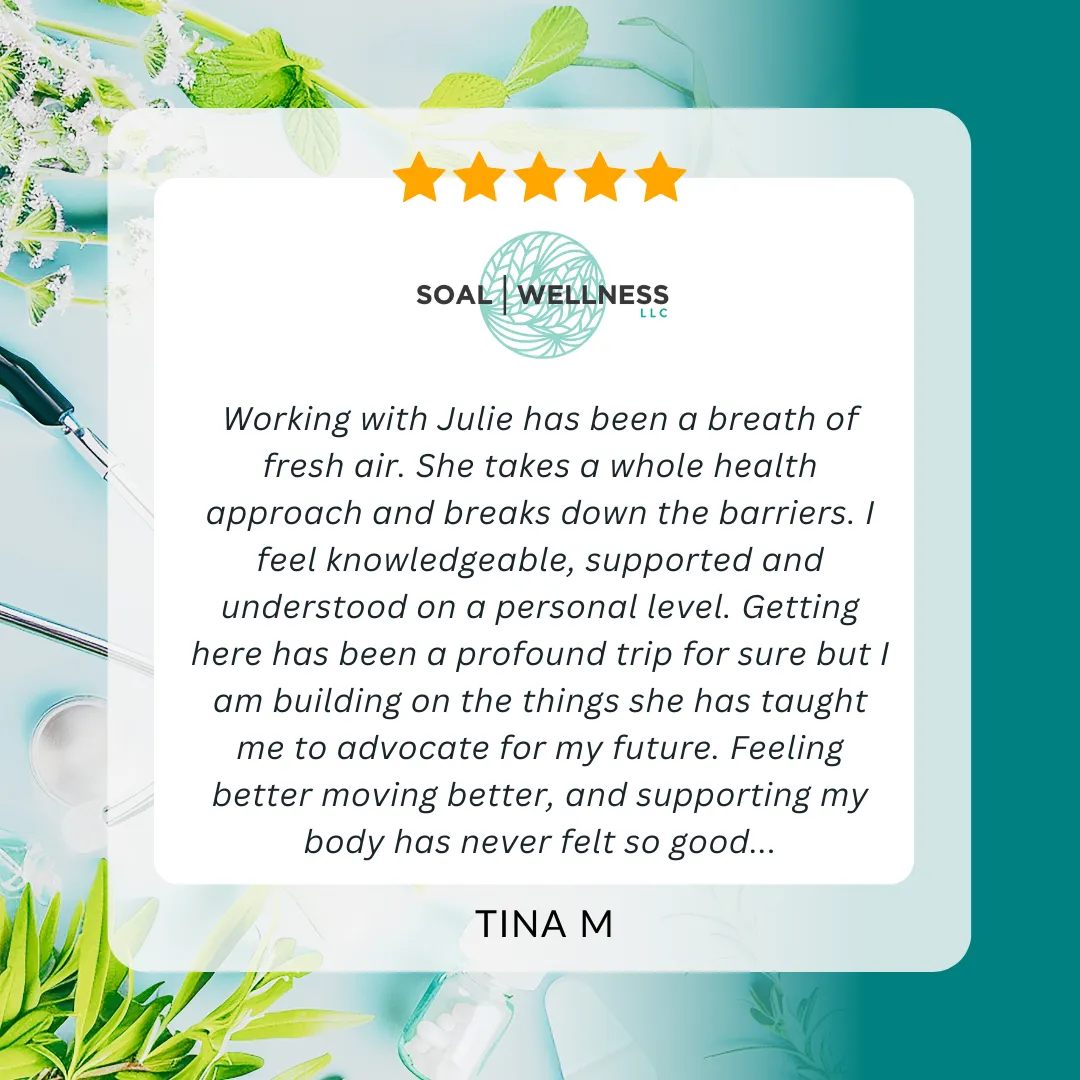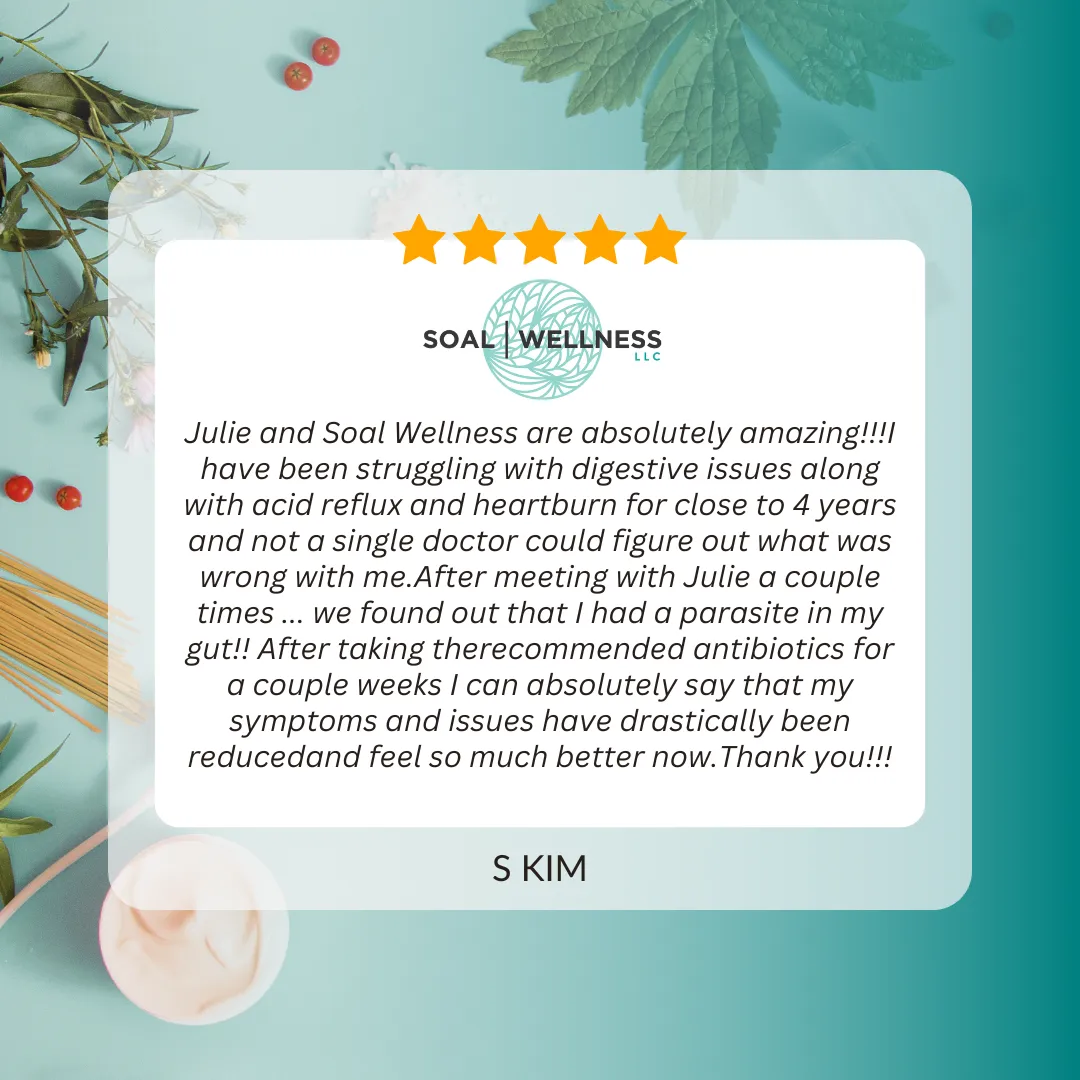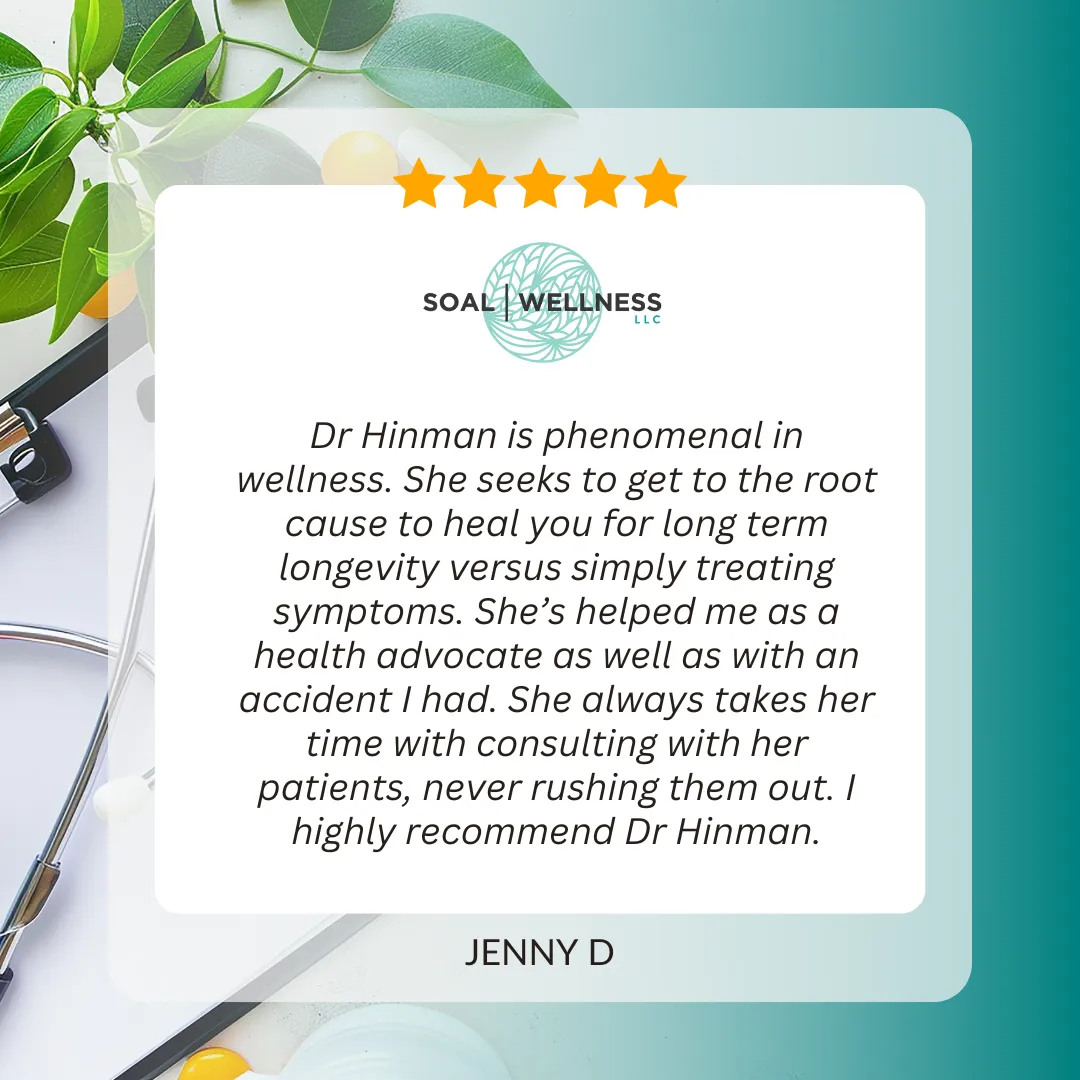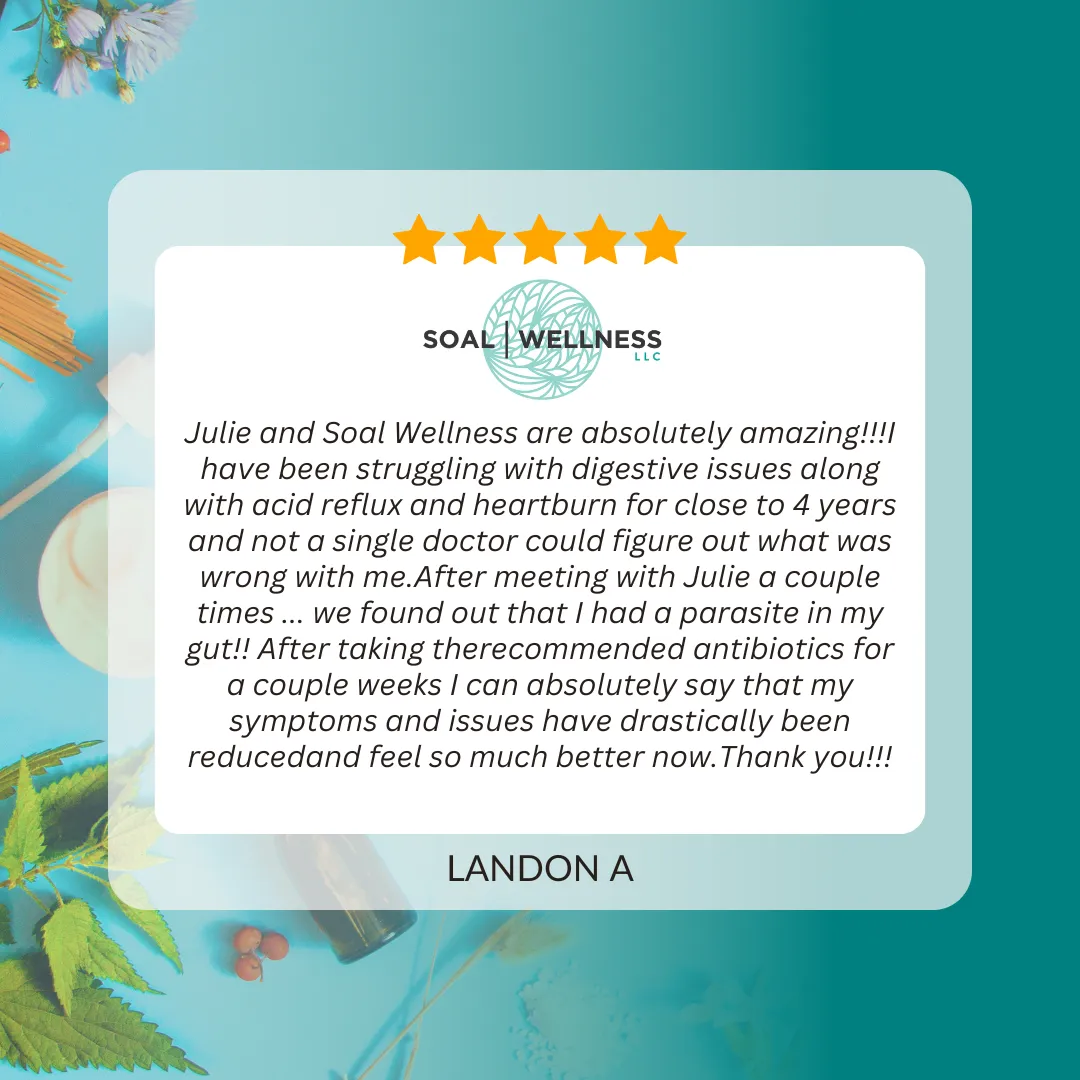Welcome to Soal Wellness
Turning healthcare into self-care.
Functional Medicine at Soal Wellness
A Root-Cause Approach to Your Health
At Soal Wellness, we take a patient-first, science-backed approach to healthcare, focusing on uncovering and treating the root causes of health concerns rather than just managing symptoms. Functional medicine is an integrative, personalized approach that looks at how genetics, lifestyle, and environment impact your well-being.

Why choose Functional Medicine?
Traditional healthcare often provides short-term relief, but functional medicine identifies and corrects imbalances to create long-lasting health improvements.
Our evidence-based approach supports:
Hormonal Balance – Address issues like fatigue, mood swings, and metabolism.
Gut Health & Digestion – Optimize nutrient absorption and reduce inflammation.
Chronic Disease Prevention – Manage conditions like diabetes, heart disease, and autoimmune disorders.
Energy & Vitality – Improve focus, sleep, and overall quality of life.
Weight Management – Achieve sustainable, long-term wellness.
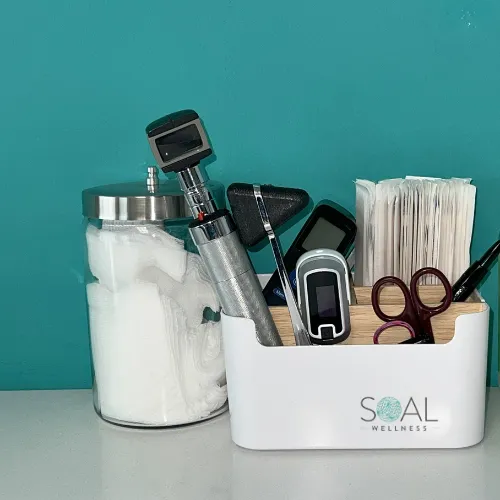
At Soal Wellness, we believe health is personal and your care should be, too.
Our Health Strategy Call is the first step in building a custom wellness plan designed for you.
Services Offered by Soal Wellness
Comprehensive, Patient-Centered Care for Your Health & Well-Being
At Soal Wellness, we offer an integrative approach to healthcare, combining functional medicine, primary care, and personalized wellness solutions to help you achieve long-term health and vitality.
Functional Medicine
A root-cause approach to health that identifies and treats imbalances in the body.
Address chronic conditions including autoimmune disorders, digestive issues, and fatigue
Advanced lab testing and individualized treatment plans
Focus on long-term health, not just symptom relief
Primary Care
Comprehensive healthcare for prevention, early detection, and patient-centered treatments.
Annual wellness exams and preventive screenings
Chronic disease management (diabetes, hypertension, thyroid disorders)
Acute care for illnesses and minor injuries
Hormone Replacement Therapy
HRT customized solutions restore hormonal balance and improve overall vitality.
Bioidentical hormone therapy for men and women
Treatment for menopause, low testosterone, and thyroid imbalances
Lab testing and continuous monitoring for optimal results
Personalized Nutrition
Science-backed nutritional guidance to optimize health and support overall well-being.
Customized meal planning and nutrient optimization
Gut health optimization and food sensitivity testing
Functional nutrition strategies to enhance digestion, energy, and immune function
Weight Loss
Customized programs designed to support sustainable weight loss and metabolic balance.
Personalized weight loss plans based on lab testing and metabolic assessments
Lifestyle and behavioral coaching for long-term success
Safe and effective strategies to enhance fat loss, muscle tone, and energy levels
Shop Soal Wellness
Discover clinically-backed supplements, skincare, wearables, and at-home lab tests curated by Soal Wellness. Support your Functional Medicine protocol with trusted tools designed for detox, inflammation, sleep, and more.
Ready to take control of your health?
Your journey to optimal wellness starts with a Health Strategy Call.
Let’s create a personalized plan that fits your needs.
Our Mission:
Turning Healthcare into Self-Care
At Soal Wellness, we are passionate about transforming lives through patient-centered care.
Our mission is to uncover the root causes of health concerns and empower individuals to reclaim their vitality. We provide personalized solutions beyond symptom management by integrating functional medicine with cutting-edge science. With expertise, compassion, and dedication, we help patients achieve lasting wellness and a vibrant life.
Success Stories: Wellness In Action
How It Works: Your Path to Better Health
At Soal Wellness, we follow a simple, structured process to uncover the root causes of your health concerns and create a personalized path to optimal wellness.

Health Strategy Call
Your journey begins with a 15-minute complimentary call where we discuss your health concerns, goals, and whether our approach is the right fit for you.
Learn how functional medicine can help you
Get clarity on next steps
Determine if we’re a good fit for your health needs

Initial Evaluation
Your first appointment includes a comprehensive health evaluation, review of your medical history, and personalized recommendations. If needed, we may order lab tests to gain deeper insights into your health.
60-90 minute consultation with a provider
In-depth review of symptoms and lifestyle factors
Lab testing and diagnostic recommendations

Personalized Treatment
Once we have a full picture of your health, we design a customized treatment plan tailored to your body’s needs. This may include:
Functional medicine protocols
Nutrition and lifestyle modifications
Supplement recommendations
Ongoing support and follow-ups
Book your Health Strategy Call today!
Turning healthcare into self-care.
Take the first step toward optimal health by scheduling your complimentary Health Strategy Call with Soal Wellness today. During this personalized consultation, our expert team will discuss your health concerns and goals, guiding you toward a tailored wellness plan.
Book your free Health Strategy Call now to embark on your journey to better health.
Frequently Asked Questions
Do you have questions? We have answers.
What is Functional Medicine?
At Soal Wellness, functional medicine is our personalized approach to uncovering and addressing the root causes of your health concerns, guiding you toward optimal wellness.
How is functional medicine different from traditional medicine?
Traditional medicine often treats symptoms, while functional medicine seeks to understand and address the underlying causes of health concerns.
What conditions can functional medicine address?
Functional medicine addresses various conditions, including autoimmune diseases, digestive disorders, hormonal imbalances, mental health issues, and chronic fatigue.
What should I expect during my initial evaluation?
Your initial consultation will involve a comprehensive assessment of your health history, lifestyle, and environmental factors to create a personalized treatment plan.
Does insurance cover functional medicine services?
Soal Wellness accepts some forms on insurance and also accepts private pay patients. Please inquire with our office and your insurance provider.
Insights from Soal

5 Signs Your Symptoms Might Be Root-Cause Related
If you’re tired of feeling unwell despite being told your labs are “normal,” it’s time to dig deeper. At Soal Wellness, we use functional medicine and advanced testing to uncover the root causes of your symptoms and create personalized plans that actually work.

Is Functional Medicine right for me?
Not sure if functional medicine is right for you? Our free checklist will help you identify the signs that root-cause, personalized care could be the missing piece in your wellness journey.

How the S.O.A.L. Method Transforms Your Health Step-by-Step
The S.O.A.L. Method at Soal Wellness goes beyond surface-level care, it's a personalized roadmap to lasting health and vitality. From advanced testing to tailored protocols and continuous support, our step-by-step approach uncovers the root causes of your symptoms and empowers you to take control of your wellness.
Stay Connected,
Stay Well.
Join our Health Community
Empowering your health journey, one insight at a time.
Join the Soal Wellness community and be the first to know about
Upcoming health workshops,
Exclusive supplement offers,
Expert tips to help you thrive.
Whether you're looking to optimize nutrition, enhance your wellness routine, or stay updated on the latest health insights, our newsletter is your go-to source for empowering information and exclusive perks.
Join the
Insights from Soal
Newsletter
No spam, just health insights.

602-730-4535 | 📠 (949) 864-3090
11209 N Tatum Blvd #140, Phoenix, AZ 85028
Scottsdale | Phoenix | Paradise Valley
